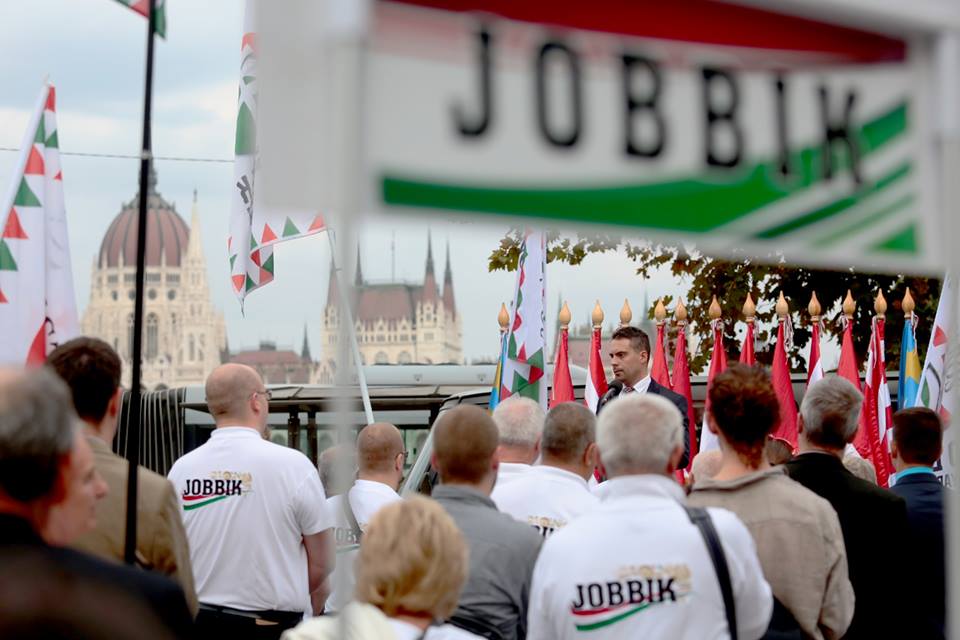Hungary / Poland – The century-old Polish–Hungarian friendship has been going through a turbulent period in recent months due to deep differences concerning the war in Ukraine. While Poland has provided massive support to its Ukrainian neighbour from the outset, including in terms of military equipment, Hungary even refuses to allow arms deliveries from other countries to Ukraine to pass through its territory. And while Poland is among those who always ask for more sanctions to force Russia to turn from the warpath, Hungary is asking for the lifting of certain sanctions as they allegedly cause more harm to Hungarians than to Russians themselves.
—
For more details about the Hungarian approach to the war in Ukraine, see:
“Hungary first! ” (15 May 2022)
—
This does not mean, however, that the special relationship is broken. The Visegrád Group summits have resumed, and the Polish and Hungarian leaders have accepted their differences over Ukraine, without abandoning cooperation in areas where they share common views. In Poland, it is mainly the left-wing press that is attacking the Hungarian government, which it accuses of being too close to Putin, as well as many other evils. Apart from the Ukrainian question, these are in fact more or less the same kind of accusations the Polish left-wing press makes towards the PiS government in Poland.
It is in this context, therefore, that Balázs Orbán, political director of Prime Minister Viktor Orbán’s cabinet (the two are not related despite having the same surname), presented the Polish edition of his book on the specific nature of Hungarian strategic thinking last Friday in Warsaw. This book has just been published in Polish with the title Tabliczka mnożenia – Rzecz o węgierskim myśleniu strategicznym (Multiplication table – About Hungarian strategic thinking), and it also has an English translation with the title The Hungarian Way of Strategy.
The presentation was organised by the Wacław Felczak Institute of Polish–Hungarian Cooperation, which is behind the Polish edition. Being written by a leading Hungarian politician, it fills a real gap, as was noted during the discussion that followed the presentation of the book: while Hungarian and Polish bookstores offer plenty of essays written by Western European or North American politicians, translations of books by Central European politicians are much rarer.
As he explained during the presentation of the Polish edition, Balázs Orbán is not seeking to convert Polish readers to Hungarian strategic thinking, but simply to explain the Hungarian point of view in a world where the strategy followed by the two sister countries has become more complex. For centuries, the history of both Poland and Hungary was one of a liberation struggle against an oppressor. Today, both nations are once again free and sovereign in a multipolar world, and it is therefore necessary to analyse and interpret the surrounding reality in order to adopt a strategy that must take into account both the desired objectives and the means available to each of the two countries, as well as the changing situation in which they evolve. Another aspect that a successful strategy must take into account is specific national features, linked not only to geography, but also to the history and culture of a people.
“This is what distinguishes us from our opponents”, said the political director of the Hungarian Prime Minister’s Office: for them, “historical experience must be set aside”, “what came before does not matter, (…) what matters is to achieve the goal they have set for themselves: equality, the establishment of a liberal world order (…), no matter what the cost ”.
“The essence of liberal thinking is to believe that there is an ideal abstract structure that is the same everywhere regardless of all local contexts. That is why the Hungarian, Swedish, Polish or British liberal thinks the same way on all subjects. (…) Among the national conservatives, the thinking is completely different. The strategy of a national community depends on its history, its geopolitical situation, and its culture.
A national-conservative can get along very well with a national-conservative from another country who shares the same values. However, since everyone is looking at their own national interests, there are bound to be differences. But this is not a problem. It is just a necessity deriving from the way of thinking. And in those areas where our interests converge, we can always cooperate, and we are also capable of tolerance and understanding towards others who also defend their own national interest. ”
The situations of Poland – a country of plains open to Germany on one side and Russia on the other – and Hungary – a country located in the “protected” area of the Carpathian Basin, which remains in close contact with the Germanic world – are different, which is why foreign policy decisions will not be the same, Balázs Orbán explained to his Polish audience. On the other hand, he said, what unites the two countries is the desire to protect and strengthen their sovereignty and to organise the Central European region through regional cooperation, such as with the V4 or the Three Seas Initiative (3SI). The two countries complement each other in this respect, with Poland being more open to the northern countries and the Baltic States, and Hungary maintaining closer relations with the Balkans.
Friday’s presentation in Warsaw was also an opportunity to clear up some misunderstandings, especially since among those present was Balázs Orbán’s Polish counterpart, Marek Kuchciński, chief of staff to Prime Minister Mateusz Morawiecki. The two men thus had an opportunity to talk face-to-face, for the third time this year.
Balázs Orbán also took advantage of the presentation of his book to respond to the reproaches often heard in Poland against the Hungarians since the Russian attack on Ukraine. He recalled that Hungary supports the aspirations of Ukraine to join the European Union just as it supports the aspirations of Georgia, Moldova and the Balkan countries. For NATO membership, however, “it’s another matter, and it’s a little more complicated”.
Balázs Orbán also noted that what Poland is doing to strengthen its army is remarkable, and that Hungary intends to follow this example because “it is the best way to oppose the Russian threat” without depending entirely on the United States. One element of the Hungarian strategy, he recalled, is to maintain a situation where there is no direct border between Russia and Hungary.
On sanctions, he explained that Hungary has been supporting the sanctions against Russia out of solidarity with its allies, but reserves the right to say what it thinks. And what it thinks is that sanctions can only work against a country that is smaller than you. Hence, the European financial sanctions do make sense, as the Russian financial market is much smaller than the EU’s. But in the energy field, sanctions can only harm Europe more than Russia. As regards support for Ukraine, he recalled that Hungarian support for that country in terms of percentage of GDP is certainly lower than that given by Poland, but at the same level as that of France or Germany, and also that there is a much greater presence of Russian capital in a country like Austria than in Hungary. Moreover, if Hungary is so dependent on Russian gas, it is because the EU has always refused to support – or has in some cases actively scuppered – energy projects that would have served the purpose of diversification, but were not deemed economically profitable (like with Romanian gas, the Nabucco pipeline project, etc.).
During the discussion of his book, which also deals extensively with the V4 framework of Hungarian strategic thinking, Viktor Orbán’s political director emphasised how much Brexit has been detrimental to the Visegrád Group countries, as a result of the Franco-German federalist tendency having gained more weight in the EU in the absence of the United Kingdom, even if Italy’s recent elections bring hope for some rebalancing.
In the end, whatever one’s political vision, the publication in Polish of a book explaining Hungarian strategic thinking can only contribute to mutual understanding between Poland and Hungary, two countries linked by a secular friendship and attached to their sovereignty, which are today the driving force behind the V4 as well as the I3M, and as such one of the main counterbalances to the Eurofederalist, liberal-progressive couple formed by France and Germany.




